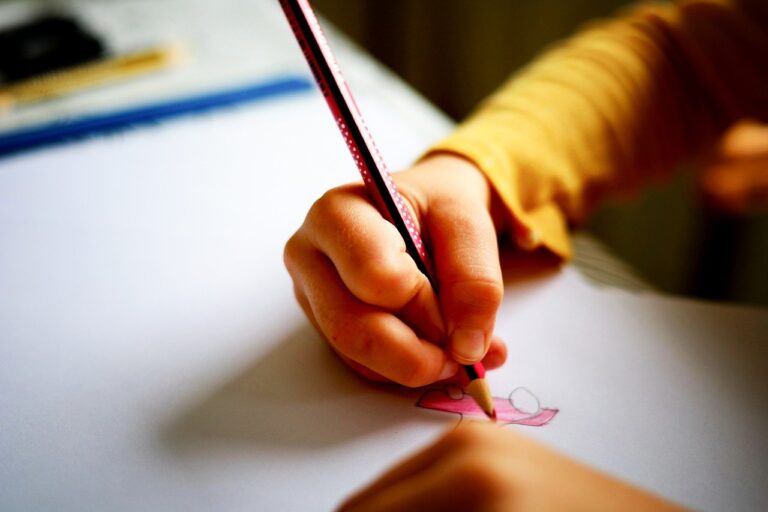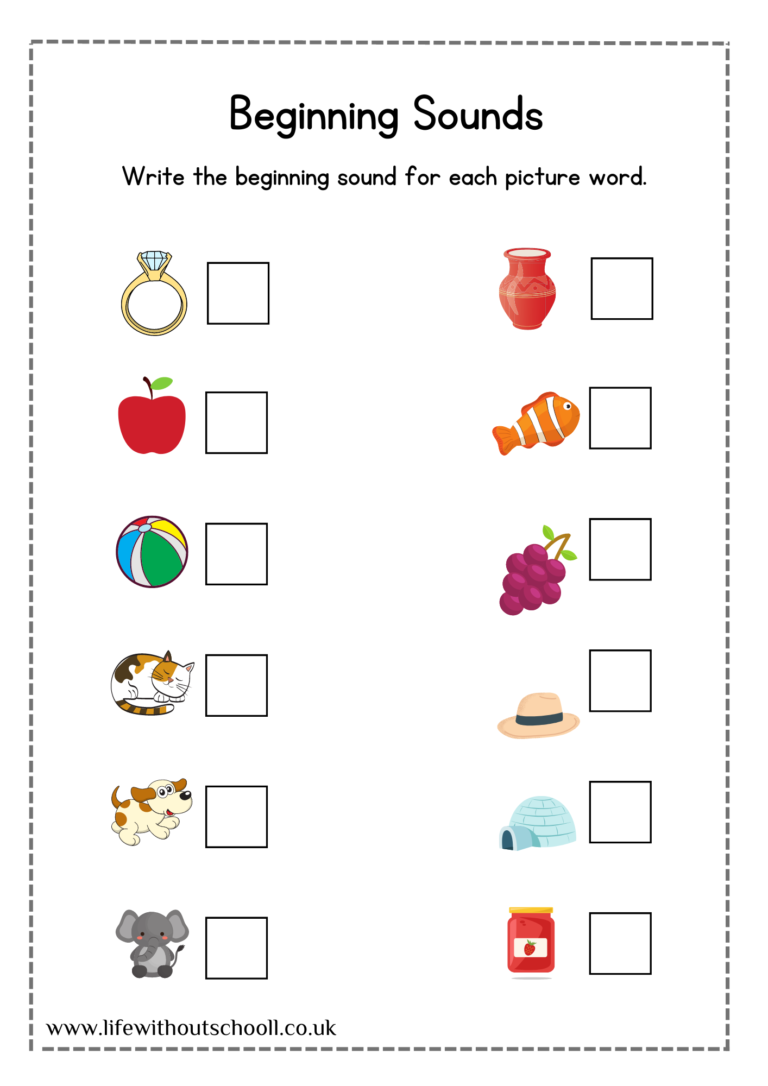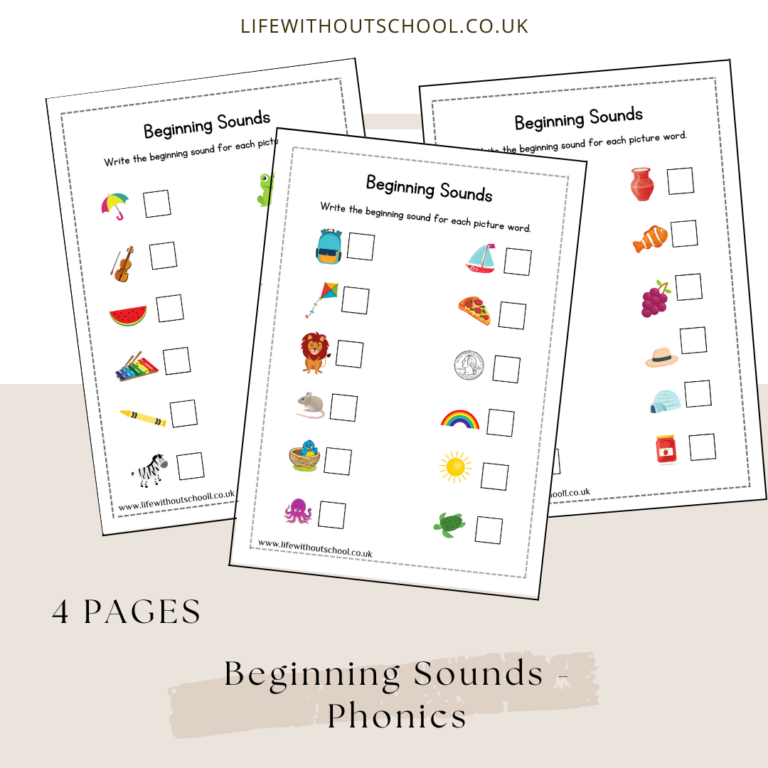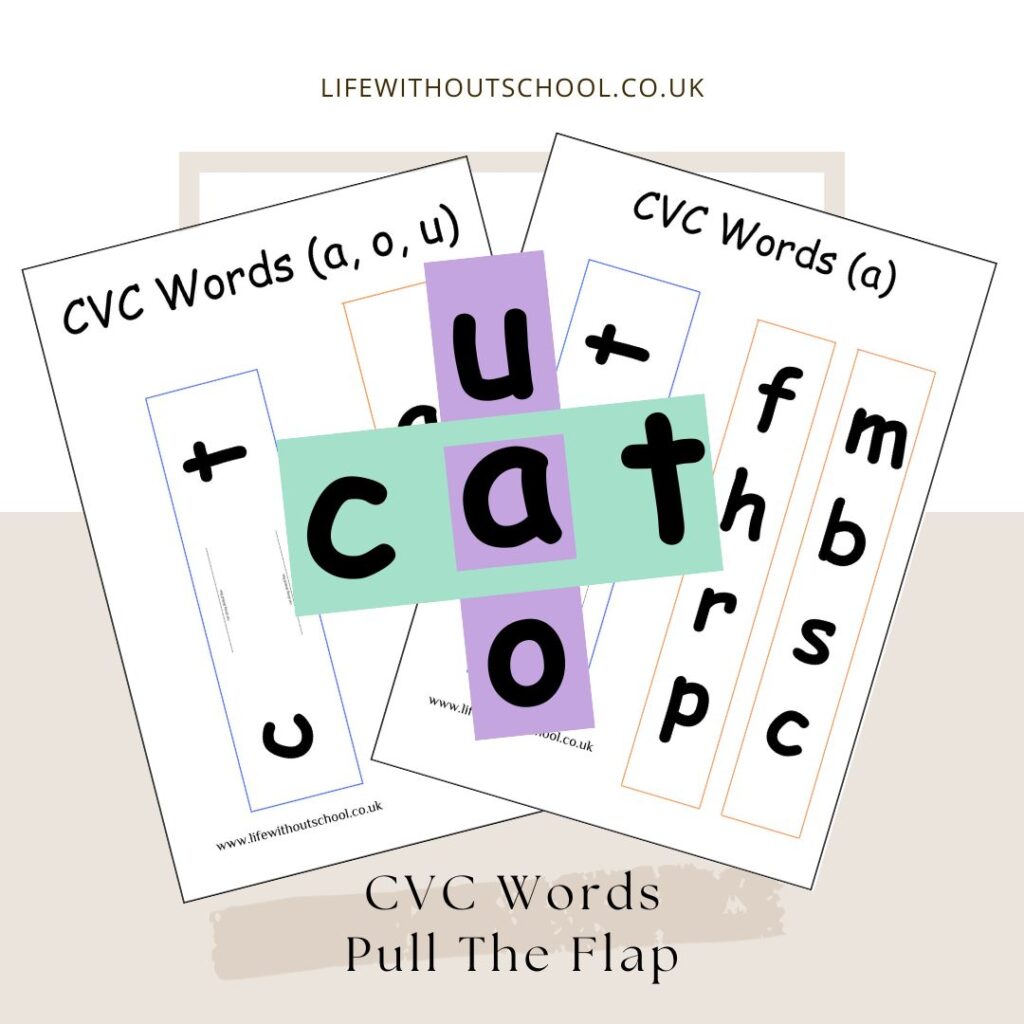Beginning Sounds Worksheets for Preschool
Beginning Sound Worksheets FREE
Teaching Phonics

These beginning sounds worksheets for preschool children are aimed at teaching your preschooler (or homeschooler) to recognise sounds as they say words.
This download is best used when your child is learning their alphabet and beginning to notice the sound that words begin with.
Get creative and allow your child to colour or paint the picture and maybe even allow them to write the letter using a Q tip and some paint.
Hands on learning is the learning that is more likely to stick! Especially at a younger age.
A simple yet effective activity is a must when teaching your child phonics, especially when transitioning from teaching the sound of the letter to applying it when it comes to words. That's where these beginning sounds worksheets for preschool children come in.
Teaching children beginning sounds is such an important step in developing your child’s literacy, for several reasons.

How to teach beginning sounds
Teaching beginning sounds is such an important step in helping your child develop strong reading skills.
It’s so important to focus on the foundation of their reading before they continue with their journey.
A strong foundation is crucial!
It is literally the building blocks for the rest of their learning,
The sooner your child gets started with beginning sounds, the closer they will be to reading.
Having said that, rushing it is never the answer. If you feel like your child is really struggling, maybe take a step back, evaluate, regroup and try again. Sometimes what you need is a completely different approach.
When first starting with letter sounds you can work with your child and just emphasise the beginning sounds. For example “Look at this hat, h h hat.”
Then have another go and try to get your child to tell you the beginning sound. It’s likely they will struggle to begin with so you should give them many examples and maybe even leave it at that for the time being and revisit at a later time.
If your child gets it wrong, you can discuss why it may not be correct. For example:
Parent: “What sound does ‘cat’ start with?”
Child: “j”
Parent: “That would make it jat, j j jat! We are trying to make cat.”
We usually have a really good laugh when this happens.
(I would also make sure I get some wrong too so they don’t feel like they’re alone – and I’ve found this to be really effective for them understanding what they did wrong!)
It’s important to keep it light and fun, once your child starts to feel pressure to get it right, they will likely struggle a lot more and possibly even shut down altogether.

Are beginning sounds important?
1. Firstly, beginning sounds help your child’s ability to hear, identify, and manipulate individual sounds (phonemes) in spoken words. Which is such an important step towards reading.
2. Kind of following on from that, recognising beginning sounds is one of the first steps in learning to read. It lays the groundwork for understanding that words are made up of individual sounds and that letters represent these sounds.
Think of it as a foundation- it needs to be really strong and sturdy! These beginning sounds worksheets are a brilliant aid to achieving this.
3. Understanding beginning sounds establishes the connection between letters and the sounds they make. Which is super important when your child is trying to decode words.
4. Also it helps children become familiar with the initial sounds of words. This familiarity is helpful in both understanding and using language.
5. Over time, knowing the initial sounds of words helps them make more accurate attempts at spelling and eventually leads to better overall spelling skills.
6. Success in recognising beginning sounds gives children a sense of accomplishment and builds confidence in their ability to engage with written language. This positive experience can motivate them to continue learning.
7. It also prepares them for more complex learning later on.
Beginning sounds is a stepping stone to more advanced phonics skills, such as understanding ending sounds, blends, and digraphs.
8. Teaching beginning sounds requires attentive listening. This can help aid in improving their overall listening to understand skills.
Beginning sounds for preschool children are super important.
Once your child can grasp the concept of beginning sounds well, they will quickly be able to identify ending sounds. This will help them to understand the structure of a word much more and they will find it much easier to then transition to learning cvc words and eventually digraphs leading to more complex words.

Download your freebie!
Need more for your preschooler?
In this post I’ve Included 2 free sets of worksheets for you to download and print.
The worksheets style differ slightly so that you can experiment and see which one your child finds easier to understand. You can then start with the easier one and move onto the more challenging one after.
I always find that when I buy workbooks for toddlers or preschoolers, there is only a small amount of worksheets/activities per section. This way it feels more like we are skimming over the section rather than learning it thoroughly.
For that reason I’ve tried creating more sets of worksheets in the hope that it may help you guys out.
As always if you have any suggestions for worksheets or something you would like more info on, feel free to leave a comment in the box below. Or send me a message either on here or on Instagram.
I love creating worksheets for you guys and giving info where I can. So if there are any specific questions you have that I can answer I would love to create a whole separate post for them.
One thing to note, is especially at this age. Don’t rush your child. Small consistent steps will get you much much further than you’d think!
If you’re starting when your child is young then you have plenty of time for them to grasp the concepts you are teaching them.
If your child is a little older when you are starting then don’t panic! Rushing won’t help you.
I’ve found that if you start when your child is older, take your time and go at their pace. Even if they start slow, once it clicks they will start flying through it!
Either way, rushing won’t get you the results you’re after. If anything it just creates unnecessary anxiety for both you and your child.

Download your freebie here!
Once your child gets the hang of it, why not try something like this. It's hands on and very simple.
Click here to see.

